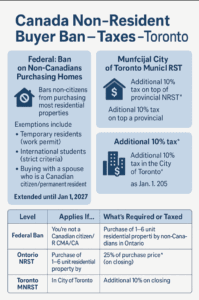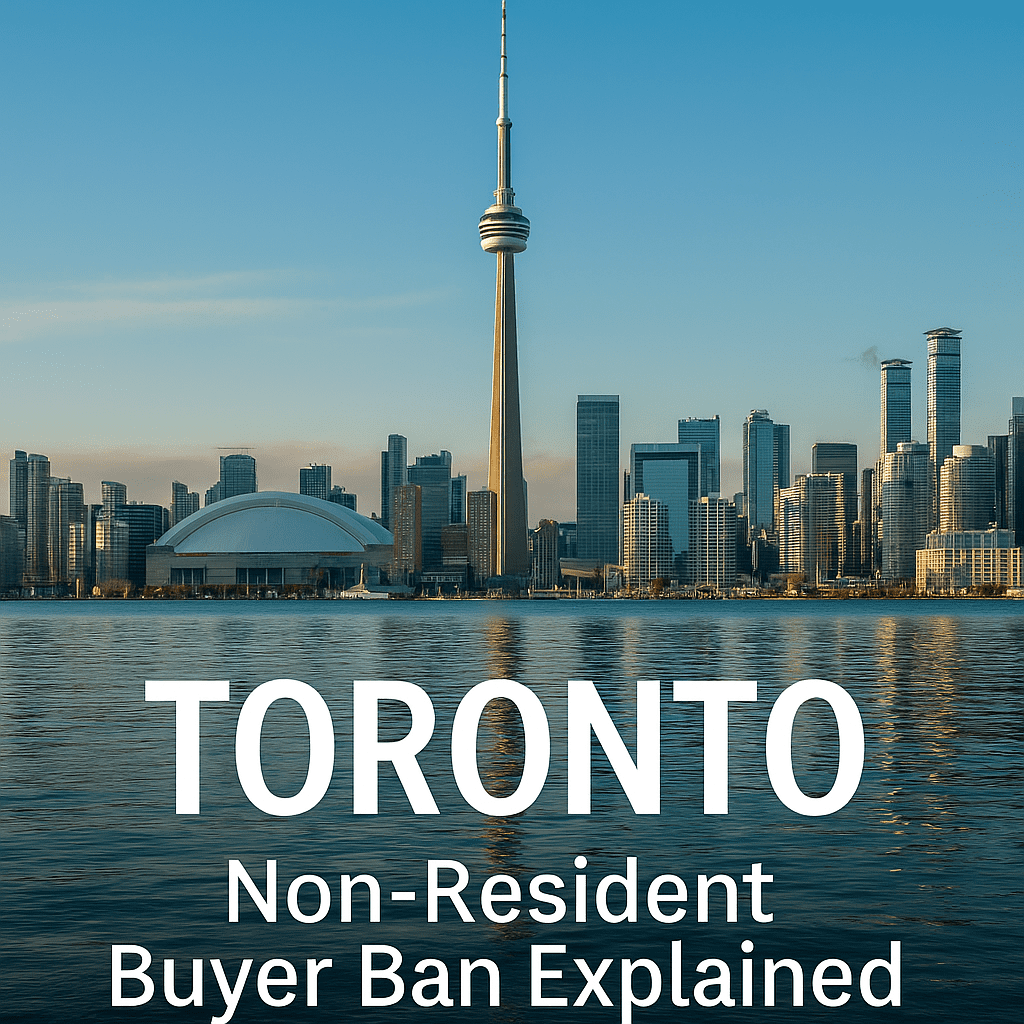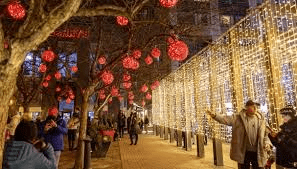1. Federal: Ban on Non-Canadians Purchasing Homes
-
As of January 1, 2023, the Canadian federal government enacted the Prohibition on the Purchase of Residential Property by Non‑Canadians Act, which bars non‑citizens and non‑permanent residents from purchasing most residential properties in Canada.
-
This ban was extended in February 2024 and now remains in force until January 1, 2027.
-
Applies only within designated “Census Metropolitan Areas” (CMAs) and “Census Agglomerations” (CAs)—such as Toronto, Ottawa, and Vancouver. Rural or cottage‑country regions outside those don’t automatically fall under this restriction
-
Exemptions exist if you’re:
-
Temporary residents with a valid work permit (minimum 183 days remaining) —and buying only a single residential property
-
International students meeting strict criteria (past five years of Canadian tax returns, 244 days/year in Canada, purchase price under $500,000, first property
-
Protected persons/refugees, or if you’re buying with a Canadian citizen or permanent resident spouse/co‑owner, or through inheritance/divorce
-
2. Provincial: Ontario’s Non-Resident Speculation Tax (NRST)
-
On top of the federal landscape, Ontario charges a 25% Non‑Resident Speculation Tax (NRST) on the purchase price of residential properties (1–6 units) by foreign buyers
-
If a non‑Canadian buys with a Canadian citizen or permanent resident, it doesn’t split or prorate—the full 25% NRST applies to the full property value
-
Possible rebates:
-
If you become a permanent resident within four years of purchase
-
And live in the property as your principal residence within 60 days after purchase
-
3. Municipal (City of Toronto): Municipal NRST (MNRST)
-
As of January 1, 2025, the City of Toronto added its own 10% MNRST on top of the provincial NRST and standard land transfer taxes.
-
Combined, a non‑Canadian purchasing a residential property in Toronto might pay:
-
25% NRST (Ontario)
-
10% MNRST (City of Toronto)
-
Plus standard land transfer taxes (provincial and municipal)
-
-
No grandfathering applies—if closing is January 1, 2025 or after, the MNRST applies, regardless of when the agreement was signed.
-
Exemptions and rebates for MNRST mirror those of the NRST: permanent residents, spouses/co-purchasers, work permit or student exemptions, principal residence occupancy within 60 days, and rebate eligibility if PR status comes later.
4. Summary Table
| Level | Applies If… | What’s Required or Taxed | Notes |
|---|---|---|---|
| Federal Ban | You’re not a Canadian citizen/PR and in a CMA/CA | Purchase is generally not allowed, unless exempted | Extended until Jan 1, 2027 |
| Ontario NRST (25%) | Purchase of 1–6 unit residential property by a non-Canadian in Ontario | 25% of purchase price (on closing) | Rebates if PR within 4 years & occupancy within 60 days |
| Toronto MNRST (10%) | Same as above, but in the City of Toronto | An additional 10% on closing | No exemptions for signed agreements before Jan 2025 |
5. What to Tell Your U.S. Client
-
Check the property’s location:
-
If it’s outside a CMA/CA, the federal ban may not apply.
-
But even then, NRST still applies province-wide.
-
-
Ask about their status:
-
Are they a work permit holder or an international student who qualifies for exemptions?
-
Are they planning to apply for permanent residency soon? Timely timing could mean rebate eligibility.
-
-
Understand cost implications:
-
In Toronto, plan to add 25% + 10% = 35% in speculation taxes, on top of land transfer taxes.
-
Example: Buying a $1M home → $350k speculation taxes before even land transfer.
-
-
Occupancy requirement:
-
To qualify for exemptions or rebates, they (and any co-owners) must intend to occupy the property as a principal residence within 60 days.
-
-
Legal strategy matters:
-
Secure exemptions at purchase when possible—it avoids paying the NRST/MNRST upfront.
-
If missed, a rebate application may still be viable if the PR becomes available soon, but it becomes more complex.
-
SEO-Rich Summary
For U.S. clients exploring real estate in Toronto, it’s essential to navigate:
-
The Federal Foreign Buyer Ban (in effect until Jan 1, 2027) restricts non-citizens from buying residential property in many urban areas.
-
Ontario’s 25% Non-Resident Speculation Tax (NRST) that applies province-wide on certain residential properties.
-
The City of Toronto’s additional 10% Municipal NRST (MNRST), effective from January 2025.
-
Exemptions and rebate mechanisms tied to work permits, student status, permanent residency applications, spouse co-buyers, and principal residence commitments.
Encourage your client to align their immigration, financing, and legal timelines effectively to minimize cost and ensure compliance. And of course, always bring in trusted legal counsel to confirm exemptions and navigate rebate applications.




